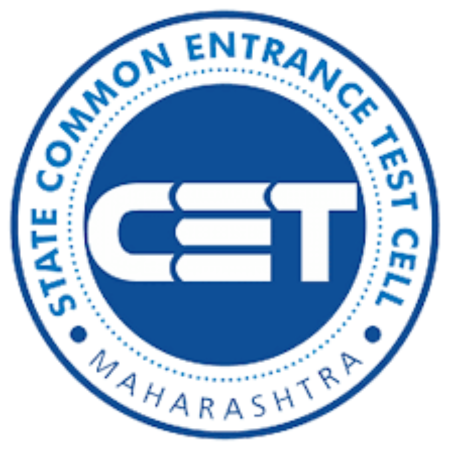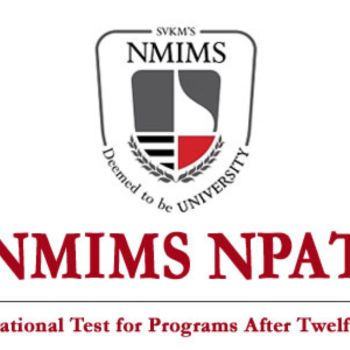B.A LLB stands for Bachelor of Arts and Bachelor of Laws, it is a 5-year integrated law degree designed for students who want to learn the law after completing their 12th standard. This program mixes topics from the stream of art - such as political science, sociology and history - with the core legal studies, helps students to create a strong foundation in both social science and law.
If you are planning to join the B.A LLB program 2025, you will need to pass class 12 from a recognized board (any section: art, commerce, or science). Most colleges require minimum 45–50% marks for general category students, and usually rest for SC/ST/OBC categories. Admission is mainly through law entrance examinations such as CLAT (Common Law Admission Test), LSAT India, MH CET Law and SLAT(Symbiosis). Some private colleges can also conduct individual interviews or use their own entry tests.
The course runs for 10 semesters (5 years) and involves a mixture of arts and law papers. You will study subjects like contract law, criminal law, constitutional law, family law and jurisprudence as well as political science, economics, sociology, history. As you progress, you also have to choose special subjects like cyber law, human rights law, international law or media law.
In addition to theory, the program includes practical training through moot court, internship, legal writing, debate and legal aid camps. These hands-on experiences help you understand how the actual legal system works and prepares you for court processes and customer interactions.
BA LLB Key Highlights
Below are the key highlights of the BA LLB course in India:
What is a BA LLB?
The B.A LLB is a five-year integrated UG degree for students who want to study law right after 12th grade. If you like politics, enjoy discussing social issues, or aim to be a lawyer or judge, this could be for you.
The program mixes arts subjects like Political Science and Sociology with legal studies, helping you develop skills in communication and problem-solving. You'll learn about key areas of law like Criminal, Constitutional, and Contract Law, and later explore topics such as Cyber Law, International Law, and Human Rights.
Why Study BA LLB?
Getting a B.A LLB (Bachelor of Arts and Bachelor of Laws) is a smart move if you're curious about society and laws. This five-year program is great for graduates wanting to kickstart a legal career. It blends arts with law studies, giving you a broader perspective.
- Kick Off Your Legal Career Early: You can begin your legal journey right after high school by enrolling in a combined degree program that merges both degrees.
- Diverse Career Options: Graduates with a B.A LLB can become lawyers, legal consultants, corporate advisors, or public prosecutors. You can also get ready for judiciary or civil service exams. Plus, fields like media, human rights, international law, and work with NGOs are great choices. Mixing arts and law gives you plenty of options.
- Wide Knowledge Base: You’ll study law along with Political Science, Sociology, History, and Economics to get a better grip on where our legal system comes from. This helps you think clearly and be a better legal professional.
- Skill development: The B.A LLB program boosts your communication, analytical, debating, and problem-solving skills. You'll learn to read and write legal documents, discuss legal and social topics, and present your research well.
- Practical Learning: This program goes beyond just learning theory. You'll gain hands-on experience through moot courts, internships, client counseling, and legal aid clinics. These activities teach you how courts function, how to handle clients, and how to apply the law in real life.
- Justice: If you’re someone who values fairness, likes to debate, or wants to help others with their rights, getting an LL.B could be a great choice for you. It is very good for anyone who cares about small things and prefers to work with others to have a positive impact through law.
Who should study for BA LLB?
If you're curious about laws, like solving problems, and want to make a difference in the world, getting a B.A LLB might be the way to go. This program is great for:
- Anyone who's interested in justice, rules, and how society ticks. If you're curious about how laws are made or want to know more about your legal rights and duties, the B.A LLB program is a great way to understand India's legal system.
- Anyone from fields like arts, commerce, or science can jump in and explore the legal world. This course is a great option for those wanting to change gears and start a fulfilling career in law.
- People who enjoy debates, logical thinking, and communicating. If you like discussing social or political topics, convincing others, or sharing your ideas clearly, law school can help turn those skills into a career.
- If you want to work in courts, companies, government, or NGOs, an LL.B. can really expand your job options. It’s great for those looking to be advocates, legal advisors, public servants, or policymakers.
- For entrepreneurs or anyone in business, understanding legal stuff can keep you out of trouble and help you make better choices.
BA LLB Eligibility Criteria
To enroll in a BA LLB, candidates have to meet some educational and admission requirements. Without fulfilling these criteria, it is not possible to enter the course. Mentioned below are the B.A LLB eligibility criteria:
- Candidates must have passed Class 12 (10+2) or its equivalent from a recognized board.
- The stream of 10+2 can be from any discipline—Arts, Science, or Commerce.
- Minimum aggregate marks required typically range from 45% to 50% for general category candidates; reserved category candidates (SC/ST/OBC) often get 5% relaxation.
- There is no fixed upper age limit mandated by the Bar Council of India, but some universities may impose their own age restrictions.
- Admission to BA LLB programs is mostly through entrance exams such as CLAT (Common Law Admission Test), AILET, LSAT India, SLAT, or state-level entrance tests. Some colleges also offer merit-based admission based on 10+2 marks, especially private institutions.
BA LLB Entrance Exams 2025
For pursuing a B.A LLB (Bachelor of Laws) in India, various national/state/university-level entrance examinations are required to be taken. Colleges and Universities in India offer admission depending on the marks or rank obtained in these examinations.
Click to know more about the 3-year degree with Honours - L.L.B (Hons.)
BA LLB Colleges in India
Various institutions in India are offering the B.A LLB (Bachelor of Laws) course, each institute has got some entrance exam criteria for admitting students. Some of the top B.A LLB (Bachelor of Laws) colleges in India have been mentioned below:
Also check for 3-year U.G general law degree - L.L.B
BA LLB Admission Process 2025
To get admission in a BA LLB course, the admission process is almost similar in all the colleges. For reference, given below is the admission process of BA LLB course at Kingston Law College:
Step 1: Go to the official site for law entrance exams like CLAT or LSAT-India. Sign up by giving your personal and education details. After registration, you will get a confirmation email or SMS with a link to complete your application.
Step 2: Fill the application form with your education history, achievements and career goals. Upload your 10th and 12th mark sheet, degree certificate or latest results, passport-shaped photos and any required category certificate. See everything before submitting.
Step 3: If your university requests this, submit your application online or personally. Some may require you to bring paper documents for verification on interview day, so prepare them.
Step 4: You may need an entrance examination like CLAT or LSAT to test your legal logic, English, general knowledge and logic. Some schools may also discuss interviews or groups later.
Step 5: Once the result is over, the shortlisted candidates will be invited for counseling or direct entry based on their rank and selected colleges. Schools will consider your exam score, interview results and application details for final selection.
Step 6: If selected, you will receive an admit card after one week of the selection round, or via email through the university portal. This letter will include your course fee, hostel information and orientation schedule.
Step 7: To secure your location, pay the entry fee mentioned in the letter and any deposit in the letter before the time limit.
Required Documents:
- 10th and 12th mark sheets
- Graduation Marksheets
- ID proofs
- Transfer certificate
- Character certificate
- Medical certificate
- Category Certificate (if applicable)
BA LLB Syllabus
The syllabus for B.A L.L.B. in India is more or less the same in the colleges offering the course. The syllabus may slightly differ depending on the curriculum followed by the institute. For reference, the syllabus for BA LLB at Kingston Law College is given below:
BA LLB Job Opportunities in India
BA LLB graduates can have job roles in multiple fields, including Legal Advisor, Judiciary (Judge, Magistrate), Corporate Lawyer and others. Some of the common job roles for BA LLB graduates in India are given below:
B.A LLB vs. B.Sc LLB
Both B.A LL and B.Sc LLB are 5-year integrated law degrees offering a qualifying law degree that enables graduates to practice law in India after clearing the All India Bar Exam. The key differences between them are given below:
BA LLB FAQs
Can I pursue a BA LLB without having an arts background?
Often, universities require candidates to possess a foundational arts background for BA LLB because the curriculum includes arts-related subjects. However, some institutions accept students from various backgrounds if they fulfill all eligibility criteria. It's advisable to examine the specific application requirements of your preferred college in advance.
Is there an age limit for applying to BA LLB programs in India?
In the past, universities enforced age restrictions for law course admissions in India, but such regulations are no longer in effect due to recent guidelines from the Bar Council. Still, a few universities or regions might have their own age criteria, so it’s prudent to verify with the institution beforehand.
What are the common entrance exams for admission to BA LLB?
Common entrance tests for BA LLB include CLAT (Common Law Admission Test), AILET (All India Law Entrance Test), and various state law entrance examinations like MH CET Law, AP LAWCET, and TS LAWCET. Additionally, some universities have their own entrance tests, such as KIITEE Law or Christ University Law Entrance. These exams generally assess proficiency in the English language, reasoning skills related to legal issues, logical reasoning, general knowledge, and mathematics.
What is the typical admission procedure for BA LLB?
The usual admission process involves passing the relevant entrance examination, applying to participating colleges, document verification, and either centralized or college-specific counseling. Some institutions may also hold personal interviews or group discussions. Final admissions are determined by factors such as entrance exam rank, category quotas, and seat availability at the chosen college.
Will there be cut-off marks for BA LLB entrance exams?
Yes, each entrance exam and participating college sets annual cut-off marks or a closing rank. These cut-offs depend on factors like the exam's difficulty level, the applicant pool, and the number of available seats. For instance, the CLAT 2025 cut-offs for prestigious law universities like NLSIU Bangalore were approximately 95-98 marks, while mid-tier NLUs had cut-offs around 80-85 marks.
Is it possible to gain admission to BA LLB without taking entrance exams?
Some private universities offer direct admission or management quota seats based on 10+2 exam scores. However, top law schools and NLUs typically require candidates to pass the respective entrance tests. While direct admissions may appear more convenient, they often come at a higher cost, and the on-campus recruitment opportunities may not be as strong as those from top-ranked institutions.







